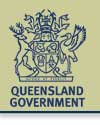


 |
 |
|
 |
 |
ConfidentialityThe Commission recognises that people giving evidence or providing information may wish to remain anonymous for a variety of reasons, including:
The Commission also recognises that some people, who may have information relevant to the Inquiry, are under a professional or ethical obligation to protect the confidentiality of their sources—for example, journalists, union officials, lawyers and Parliamentarians. Also, the Commission may wish to protect the confidentiality of information which it receives for its own operational reasons—for instance, so that potential witnesses do not have the opportunity to destroy evidence. Procedures exist to protect the anonymity of people who do not wish to be identified, and the confidentiality of information and documents supplied to the Commission. A summary of these procedures is provided below. Closed sittingsUnder the Commissions of Inquiry Act 1950, the Commissioner can hear evidence in a closed session—with the public, press and media excluded—if ‘it is in the public interest expedient so to do for reasons connected with the subject matter of the inquiry or the nature of the evidence to be given’. The Commissioner will consider applications to give evidence in a closed session on any of the grounds outlined above. In particular, if the application is based on a witness’s fears—a fear of harassment, being sacked, or harming career prospects—it is sufficient if the fear is a genuine one. It is not necessary to prove the extent of the risk. Evidence by written statementUnder the Commissions of Inquiry Act 1950, the Commissioner can also receive evidence in the form of sworn statements. In many instances, witnesses may be asked to give evidence in this form, either because the evidence is not contentious (that is, because there is no real dispute about the truth of what the witness is saying), or simply to save time and expense. But witnesses can also be given the option of providing evidence in this form on any of the grounds outlined above. Providing intelligence without giving evidenceA person who has knowledge of relevant matters can—without becoming a witness, by giving evidence either at a public sittings, or in the form of a sworn statement—provide information to the Inquiry team. For example, a person may be able to help the Inquiry by providing names of people whom the Inquiry should be interviewing, or documents which the Inquiry should be looking for. Confidential documentsAny document supplied to the Inquiry — such as a witness statement or a submission — can be marked ‘confidential’. Such a document will not be released to anyone outside the Inquiry unless the Commissioner decides that it is essential to do so. If you have supplied a document marked ‘confidential’, you will, wherever possible, be given an opportunity to explain why it should be kept confidential, before the Commissioner decides that it can be released to anyone outside the Commission. The Commission will do everything possible to address your legitimate concerns. Non-publication ordersThe Commission also has the power, under the Commissions of Inquiry Act 1950, to make an ’order that any evidence given before it, or the contents of any book, document, writing or record produced at the inquiry, shall not be published’. The Commissioner will consider applications for such orders on any of the grounds outlined above. Once again, if the application is based on a witness’s fears — a fear of harassment, being sacked, or harming career prospects—it is sufficient if the fear is a genuine one. It is not necessary to prove the extent of the risk. Statutory protectionsPersons giving evidence or providing documents or information to the Commission should also be aware of other protections which exist under the Commissions of Inquiry Act 1950 and other legislation. These include:
More information about giving evidence or providing information to the Inquiry is available on the Having your say page. *apart from criminal proceedings relating to perjury (giving of false evidence), judicial corruption, fabricating evidence, corruption of witnesses, deceiving witnesses, destroying evidence or preventing witnesses from attending. |
|
|
|
||
|
|
|
|